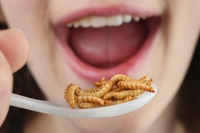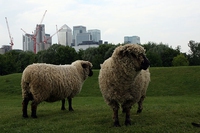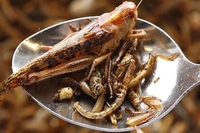
Bugalicious, eating insects for sustainability
In many parts of the world bugs are consumed as a healthy delicacy. Slimy, creepy critters already form part of the daily diet of at least 2 billion people worldwide. Prepared correctly, eating insects can be a delicious and nutritious food source. Now you probably enjoy a cheeseburger as much as the next




